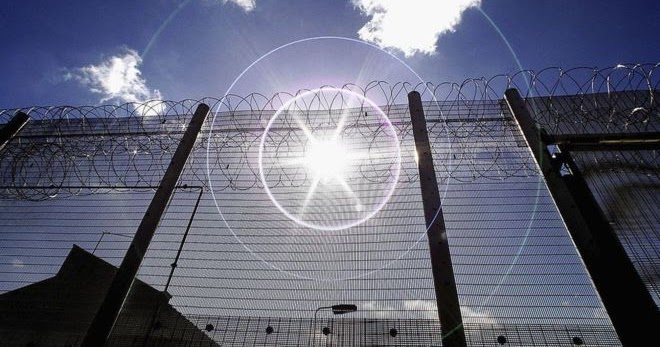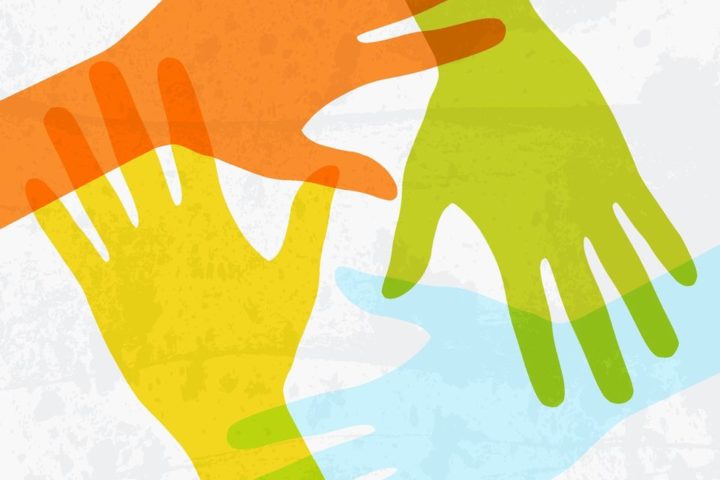The following text was first published on Freedom News. It was contributed by Lisa Selby @bluebaglife (follow them on Instagram and Twitter), UK Prison Wives and the UK Prison Support Group. It describes the experiences of people in prisons and their loved in the time of COVID-19 and beyond.
My partner, Elliot, has been out of prison for almost a year now, after serving almost three years.
On prison visits, I remember the importance of touching each other – skin to skin, rather than stroking screens. Like many others before me I turned to closed online support forums run by loved ones of people in prison. I am still part of these communities; together, we experience and find out things before prison officers, before journalists, before MPs, before the Prime Minister.
We are speaking as a collective on behalf of our loved ones incarcerated.
Firstly what we are concerned about is the lack of clarity. What does this mean for reopening prisons to visitors? Do we get our visits back? When will we know? These were the main questions on our prison support forums. After Prime Minister Boris Johnson’s most recent announcement, nothing was said about the people incarcerated in the UK’s prisons.
‘My teen was watching today’s announcement praying they would say when he could see his dad, I tried to tell him that prisons wouldn’t be mentioned. How hard it must be for a child to think that no one else cares about the person they care most about.’
– Partner of person in prison
Under Covid-19, all UK prison visits have been temporarily cancelled. The so-called temporary introduction of video calls has been widely welcomed by the loved ones of those incarcerated, who have signed petitions and passed them around online, fully aware of the possible long-term implications. Children want to see their parents and parents want to see their children.
‘My 4year old is absolutely heartbroken. She hasn’t just been taken away from her friends but also her dad, who she was seeing on a weekly basis.’
– Partner of person in prison
You don’t have to know much about prisons to know that the support of family and friends reduces the likelihood of reoffending. The prison population in England and Wales is approximately 83,000. This is a lot of vulnerable, marginalised and at-risk people to ignore. Lack of contact with their loved ones, as well as the services many rely on, means that the isolation people in prison are experiencing is more intense than ever.
The Government’s lack of clarity is creating undue tension for people in prison and families with loved ones in prison is increasing the stress on the prison system which includes officers and frontline workers. This tension is carried from the staff to those incarcerated, and onto families. Families of people in prison are already made vulnerable by the emotional impact of separation and the financial impact of having someone inside.
Some loved ones of people in certain prisons have been told that video-calling ‘visits’ may be implemented under Covid-19. Many of those families who were promised these video calls, have been told that due to the easing of lockdown rules, the calls will no longer be an option for them. That’s a lot of families promised contact, then denied it, in a matter of weeks.
‘My partner was told video visits would happen and then beginning of the week was told they wouldn’t be happening as we would be coming out of lockdown, it’s a shame as there given false hope, they wonder why it kicks off’
– Partner of person in prison
Every prison comes with its own agenda and set of rules. Many families were not offered video calls, and have had limited contact. If one prison is allowing virtual visits, then why is another prison not offering them? In terms of plans, there seems to be a lot of policy talk with promises, and little to no action or explanations. Where are the equal standards for all prisons across the board? How do we help connect families and friends of people in prison during a pandemic? How can prisons prepare for this in the future? How can we be sure that this isn’t about profit for the prison system? We can’t be sure. With questions left unanswered, loved ones are desperately trying to piece together information amongst themselves.
Our second concern is that implementation of video-calling offers increased opportunity for monitoring and surveillance. There are so far no guarantees that calls remain private. We must have more clarity and more guarantees on the temporary nature of the technological solutions implemented during a pandemic.
Purple Visits is a platform that implements video calling within a military-grade security setting and is monitored by a security team. Families download the app for free 30-minute-long video calls, while face-to-face visits are not available. Once loved ones have downloaded the app, they are asked to upload ID, a utility bill with their address and a selfie. They receive an email when their ID has been verified asking for the incarcerated person’s name and prison number. Once it has been registered, they can request a visit at their end. Only the people registered on the app can be in the call otherwise it pauses. Due to the lack of information provided by the MoJ, there are rumours that these calls will be paid for at a later date. Last year it was reported that one call on the Purple Visits app would cost £10. If those prices rise, then families on a lower income would struggle to afford these video calls, while families on higher incomes would have stability and the connection to strengthen their relationships.
Selected Category D prisons are allowing FaceTime calls. We all know that Facebook is only private if you don’t post, call on FaceTime, or sign up in the first place.
The introduction of this technology has grave parallels with changes in the U.S prison system. In the U.S, 74% of prisons that implemented video-calling subsequently ended face-to-face visits. Of course, for a sector that has suffered a decade of cuts under Tory austerity, video-calling offers numerous benefits for prisons, reducing the staff-costs required to facilitate face-to-face visits.
Likewise, the implementation of U.K. video-calling offers increased opportunity for monitoring and surveillance; there are no guarantees that calls remain private. Instead, there are growing concerns that Covid-19 provides an opportunity for the state to seize increased authoritarian control. Such changes risk building a ‘virtual panopticon’ that includes not only prisoners, but their loved ones at home too.
Lisa Selby @bluebaglife (on Instagram and Twitter), UK Prison Wives and the UK Prison Support Group




